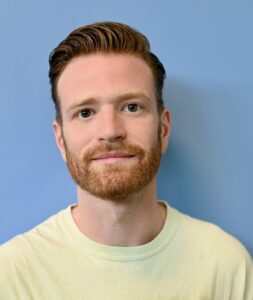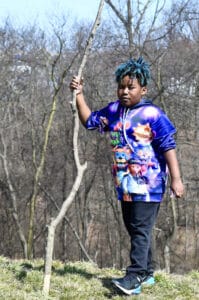Invisible Mycelium networks (image above) provide communication and nutrition that support the growth of many species of plants and a healthy ecosystem – is this a model for education?
Fred is the parent of ten year old Max. During Covid lockdowns the school asked Fred to ‘deliver’ lessons that the school had designed, so that his son did not ‘fall behind’ in his ‘education’. Instead, Fred took Max out of the house and together they explored what is happening in a wood, under a stone, in a stream. They looked at the clouds and experienced the weather. They delved into websites and books to make more sense of their experiences. Fred was not happy when Max had to return to school, although reconnecting with friends was valuable. Surely there was more to childhood learning than this?
Sue has two children aged six and eight. She realised that the school was making them anxious and that their autonomous learning was being compromised. There was too much knowledge being drilled into them, and too many tests to ensure they were getting it right. She home-educated them for a while and eventually found a Montessori school where they are happy. I had a similar experience with our children in a ‘good’ state primary. They flourished in a Steiner school.
Most readers of Progressive Education articles will have come to the conclusion that for all their worth in socialising and safeguarding, schools are seldom hotbeds of real education. There are serious mental health issues among pupils and teachers, and problems of teacher supply and retention. Businesses cry out for confident, autonomous, resilient school-leavers who can think creatively and work in teams.
Yet most of the discussion about education reform revolves around how to make schools better, or how to deliver the curriculum more efficiently. There is never examining what ‘better’ means, nor considering whether curriculum is something that can be manufactured, packaged and delivered like a pair of trainers. We need to examine what is fundamentally wrong with schools, colleges and universities, unmask why this is a necessary part of the neo-liberal economic model that reduces learners and increases inequality, and what is a fundable alternative.
For there is another way of looking at education, based on the principle that learning happens throughout life, naturally, is fun as well as challenging, and that control of learning can be returned to the learners. Everyone is potentially both a teacher and a learner; imagine an infrastructure that will best support development of freedom-loving creators of a new humanity. There are converging crises in social cohesion, the endurance of patriarchy and systemic racism, in the economy, the climate crisis and in international relations. We need fresh thinking at every level, and it is secondary schools and universities that are dumbing us down and holding us back. The proposal below is aimed at children post 14 and all adults, as part of the much-needed change.
Unleashing the learning community
Every city or town has a huge, untapped commons or cultural capital in the creativity, experience, wisdom, networks, and willingness to share among its citizens. This can be the basis of a new approach to learning.
Every community is rich in experience that many would like to share, but are prevented from doing so because there is no way of connecting with someone who might want it. Think of the wealth of expertise that exists across the land, in gardening and ecology, software design and gaming, mechanical engineering, artistic endeavour, personal and commercial relationships, and understanding and experience of different times and cultures. This astonishing resource can be liberated through a combination of mentors, managers and experts who collectively provide a matrix in which any learner can find out what they want, and grow. That is real learning, not schooling.
Mentors
Suppose we keep (for now) primary and middle schools for developing confident and resilient learners with skills in communication, critical thinking and systems thinking. This could be underpinned by courses in ethics and citizenship, though these are better learned in action. But let us reduce the compulsory school-leaving age to (say) 14 or 15, and invest in free learning throughout life, employing skilled mentors to help learners of any age to work out what they want to achieve, and how best to set about it. Much learning will be project-based rather than syllabus-based. Mentors will help individuals and groups of learners to set themselves broad objectives, working out a path to achieve these. This role of mentor will appeal to many teachers at all levels who entered the profession to share their love of learning, but instead find themselves imparters of information, or social workers, or medical workers, or even law-and-order officers.
Mentoring – encouraging learners, sharing enquiry through asking questions and proposing lines of action – lies at the heart of education. This is implicit in the thinking of many great educationalists such as John Dewey (Experience and Education 1938), David Kolb (Experiential Learning: Experience as the Source of Learning and Development 1983), Paulo Freire (Pedagogy of the Oppressed 1970), and Ivan Illich (Deschooling Society 1971). And they were preceded by educational giants such as Socrates and Leo Tolstoy, whose thinking on education is not well known as his fiction. The place of mentoring in structured learning is now more important than ever, since most information is available online. It is a skill closer to counselling or coaching than the efficient delivery a knowledge-based curriculum. It involves supporting each learner or groups of learners to identify their aims and aspirations, and helping them to build the confidence and resilience to realise these.
Evidence of learning
Deep learning is often the product of reflection on one’s own activity – see Dewey and Freire referenced above, plus Graham Gibbs (Learning by Doing 1988), and bell hooks (Teaching to Transgress – Education as the Practice of Freedom 1994). Mentoring can also provoke reflection and recording the learning that has taken place, something that will be useful for applying for a job or seeking support for a start-up. In our scenario every learner will build over their lifetime a portfolio recording experiences and reflections. In many cases this will replace formal exams and certification which indicate little more than skill in passing written exams. Actually, success in exams (GCSE, A level or Tec level, bachelors and even higher degrees) indicates only that the individual is bright in addressing academic tasks, hardworking and above all conformist. But do we need more conformists? There are, of course, areas where technical expertise must be acquired and tested before the practitioner can be let loose on the public, for example brain surgery, plumbing, flying a plane or legal advocacy. Such vocational training is not the same as education. The late Ken Robinson gave a good example of the difference between education and training. If his teenage daughter comes back from school saying she had sex education, that is not the same as her saying she has had sex training.
Learning Resources Managers
In this alternative scenario mentors will have access to learning resource managers who scan the community for people with knowledge and skills, libraries or other information banks, workshops or fab-labs, structured online courses or more DIY learning communities, playing fields and studios for creative activities… the list is endless. When a learner (or more likely a group of learners, as learning is naturally a social project) has determined with the help of mentors what they want to achieve, the learning resources managers can point them in the right direction.
Using local expertise
The third group of learning facilitators are the experts. People and their expertise are the great, untapped resource in every community. There is a wealth of experience among older people who are often more successful entrepreneurs than younger people. They might have more experience and wider networks; a Chatham House study points to some of the research on this. Along with mentors and resource managers, experts form the third pillar of this new, emergent infrastructure. Experts can be identified by their experience (possibly supported by their portfolios), not just paper qualifications. You don’t need a cordon bleu to be a great cook, an MBA to be a successful entrepreneur, or computing qualification to write code. The cultural capital that lies largely latent in the experience and wisdom of residents of any town or city can be put voluntarily into the commons and shared for the common good. This happens already in myriad ways through volunteering – but think how much more could be done of there was an infrastructure to share it on a city-wide basis.
Bringing it all together in a Community Learning Exchange
Let us call such a matrix or infrastructure a Community Learning Exchange, recognising that everyone can be both teacher and learner. It might be entirely virtual but we can see a lovely building, maybe an old school or college, providing a physical learning focus for the neighbourhood or small town. It will be attractive and without locked gates. There will be a high quality café supplied by local growers and staffed by people wanting to develop skills of catering and hospitality. There will be workshops, fab-labs and studios, plus meeting places, performance areas, laboratories, peaceful areas, trees and gardens and facilities for sports. It will be a place where people of all ages will freely go, interact and have fun. It could also be the centre for statutory services. It will incarnate the old saying, “It takes a village to educate a child” and be far different from the state-controlled institutions where decisions are made remotely, and which disable so many people in the name of education.
Designing democratic governance of Community Learning Exchanges (CLEs) need not be an obstacle. There always will be a need for some statutory services at a community level – policing, safeguarding vulnerable people, primary and acute health care to name a few. It is right that these be overseen by an elected body, though at present far too much is decided by central government. This provision already comes through a mix of state, business and third sector institutions. As government moves towards being a platform for encouraging and supporting initiatives – rather than being the first-call provider of all services – local or city-wide authorities will underpin rather than manage their CLEs. There could be a national charter of standards which is adapted to the local situation and all stakeholders in the CLE will sign up to it. This could be a legally enforceable contract. There could be agreed methods of resolving disputes in the first instance through arbitration rather than through courts. This charter could be reviewed in citizen assemblies on a cyclical basis. The aim, as always, is for stakeholders to have a say in the formation of policy and oversight of its execution, and to overcome the atavistic tribalism of political parties.
A role for central government?
The parallel emergence of Community Learning Exchanges will elicit support from NGOs and faith communities as well as farsighted local and regional authorities, especially if their funding and governance is organised locally. Many businesses and some HEIs will be delighted – they lament that people come to them unable to think for themselves, work in teams or generally be field-ready for employment. And central government? The track record since the middle ages has been to pull decisions into the centre and deny local authority. Of course, there are some things that must be organised centrally at least in part – transport infrastructure, sophisticated R&D as with the Covid vaccines, fair taxation and distribution of subsidies and incentives, and almost certainly defence – but not learning. Devolving learning could fit nicely into a larger levelling up agenda with more local autonomy.
Building on hope, not fear
Our current education system is not designed around hope; it is based on fear, protection and control. It assumes that learners cannot be trusted to learn nor teachers trusted to teach. The system works well in producing a disempowered and uncritical population, but is in meltdown. This is exacerbated by the Covid pandemic and ongoing climate emergency. By teaching people not to think for themselves, nor to take responsibility for their own learning, the current system is part of the problem. It is based on, and reinforces, the myths that life is about individual success, that anyone can make it to the top (ignoring that there is little room at the top for more than a few). Alas, parents as well as schools, universities and governments all feed into this conspiracy of ignorance and delusion, by continuing to conflate education and schooling. Ivan Illich, whose thinking has inspired much of this article, said in Deschooling Society (1971), “The pupil is ‘schooled’ to confuse teaching with learning, grade advancement with education, a diploma with competence, and fluency with the ability to say something new. The (pupil’s) imagination is ‘schooled’ to accept service in place of value.”
There will always be a place for some traditional schools, colleges and universities, and nervous parents will hang onto these, trying to get their children into the ‘best’ schools and meet the ‘right’ people. They afraid of their children missing out.
Learning led by Learners
Learning led by learners, supported by their mentors and largely through projects, does not mean that formal class teaching will disappear altogether. Anyone wanting to develop capacity in a technical field will almost certainly need maths. So there will be maths classes available through the CLE. But attendance at these will be at the will of the learner, not because some remote Whitehall official or academic has decided it would be good for them. Even then, much can be self-taught using online resources as with the Khan Academy (https://www.khanacademy.org). Anyone wanting to start a business will need good communication skills; again the CLE can be the place to develop these. New communities might form to study for a traditional exam. But the massive infrastructure of schools, syllabuses, examination authorities, recommended textbooks and state-registered teachers need not be a necessary precondition of having these.
An example of self-regulating learning is open source software. Some enterprises jealously guard their patents (big pharma comes to mind), others choose to contribute to the commons. Development of free open source software (FOSS) is happening without boundaries or centralised control, although individual licences are made available by their developers with varying degrees of restriction. These can range from fully available in the public domain to tightly controlled, trade secrets. The Linux operating system is one such example.
The city of Barcelona is leading on the development of new business through sharing digital sharing (https://ajuntament.barcelona.cat/digital/en). See especially what is happening in Poblenou (https://ajuntament.barcelona.cat/digital/en/digital-innovation/make-in-bcn/poblenou-maker-district). All over the world individual entrepreneurs or design communities are coming together to research, develop and learn from each other. This is an important dimension of the restoration and creation of a new commons.
Self-directed learning has arrived!
Another Barcelona-based initiative is Learnlife. This is based on a number of learning hubs. They invite learners to “experience a better way of learning, backed by science and research, that is learner-centred and focuses on self-determined, purpose-inspired and personal learning.” Committed to lifelong learning, they run full-time, part-time, afternoon and summer programmes in the format of the learners’ choice. This can be on-site at one of the innovative Learnhubs, or online from anywhere in the world, or a blend of both. The aim is to “empower skills such as collaboration, digital literacy, critical thinking and problem-solving to thrive in a fast-changing world.”
Self-Directed Education learning communities are popping up in the UK. Progressive Education tells stories of many of these, with excellent videos explaining the underlying principles, including those of democratic learning. They show what happens when education is based on mutuality and trust, not fear and central control. Case studies of hybrid learning possibilities can be found on https://www.progressiveeducation.org/approaches/hybrid-learning/.
Returning learning to the commons
Now that we are rediscovering the importance of the commons and the creation of shared, cultural capital as a collaborative venture, we need an educational infrastructure to encourage and underpin this – hence the need for Community Learning Exchanges. Availability of Universal Basic Dividend (or Income) will unleash the communal entrepreneurial energy that lies dormant in every neighbourhood, town or city. The learning commons is all around us, but the presence of the state-controlled education continues to hide and suppress it, defining people as a successes or failures, and damaging them. The most successful people suffer from a sense of privilege and entitlement and the less successful are prone to holding back through impostor syndrome. The organic development of local and regional Community Learning Exchanges, responsive to local need and learners’ aspirations, will transform democracy and the quality of life. It will make possible new relationships, and things that we cannot even imagine at present. Such a bold step, based on trust, mutuality, respect and hope is the only way to respond to the current convergence of crises by placing learning in the commons, rather than reducing it to meaningless transactions.
This article is based on the short book Education Unbound: How to Create Educational Opportunity in Abundance which is available from all good bookshops or Amazon (UK):
James Pitt FRSA
Apart from a few years as a joiner, James has spent most of his working life in and around education. Many years were in informal education where he was a neighbourhood organiser. He has taught in schools and universities and was senior research fellow in the education department at the University of York. He has been deeply engaged in curriculum development and teacher training, especially in England and Russia where he is an honorary professor.
James’ specialist areas are design, and education for a circular economy. Author of some 40 plus articles and books on education, he has been pondering what it all adds up to. With five children of his own, not to mention grandchildren and a great-granddaughter, the future of education is close to his heart. Education Unbound: How to Create Educational Opportunity in Abundance is born of reflecting on that experience.
Ken Webster FRSA
Most of Ken’s working life has been in education, either formally as a secondary school teacher, a lecturer in higher education or as an educational consultant developing educational resources and programmes internationally. He was significant in the development of contemporary ideas around the circular economy and was Head of Innovation for the Ellen MacArthur Foundation (2010-18). Ken is currently a Visiting Fellow at Cranfield University and a member of the Club of Rome’s 21st Century Transformational Economics Commission. He is author of Circular Economy: A Wealth of Flows and Sense and Sustainability (with Craig Johnson). Ken holds that education and critical thinking are central to all constructive change.




